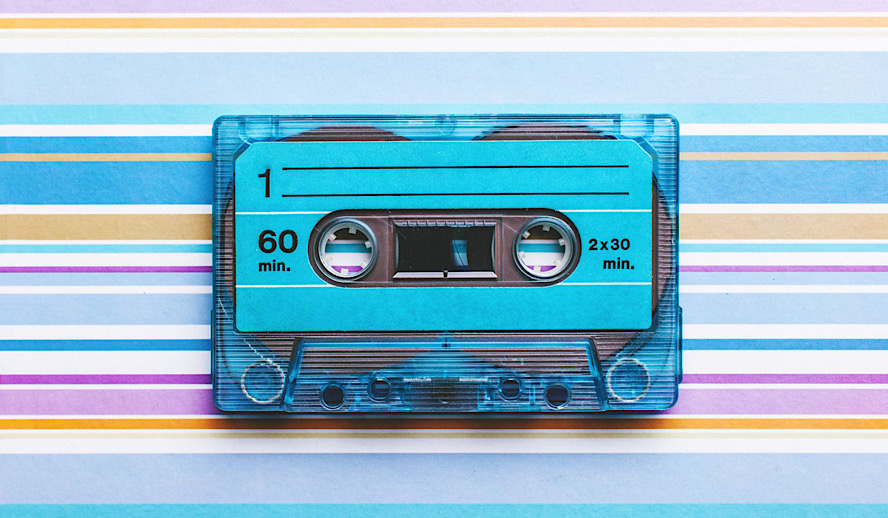Table of Contents

Photo: Indie Music
Well, this really was not an issue until the 2000s. Record companies always were the gatekeepers to the industry. You had to pay someone to manufacture and ship your records to the stores; you had to get yourself in the media – TV or radio, because there was no other way of being heard. What’s most important, you could not make a proper product without a record company. The recording process was far more complex and involved equipment that often cost several hundreds of thousands of dollars, sometimes more. Basically, you couldn’t create anything material without the company.
So, these were all obvious arguments in favor of the label side, but the digital revolution changed a lot of that, and it suddenly emerged that you, as an artist, can be in complete control of your recording, producing, publishing, marketing, booking, logistics, and even merchandise sales and management and thus, of course, you can be the only beneficiary of any income associated with your act. But – do you really want to, and is it really worth it?
Related article: The Evolution of Billie Eilish: Detailing the Star’s Historic Rise to Fame
Related article: The Future of the Music Industry Revealed in ‘Billie Eilish: The World’s A Little Blurry’
Indie Music – Why labels are still important
Since 2020 was a pandemic year and, in terms of analyzing industry data, a very unnatural one, it probably makes more sense to look at the information from 2019 to draw conclusions. According to the RIAA 2019 Mid-Year Music Industry Revenue Report, revenues from streaming grew 26% during just the first half of 2019 and streaming made up 80% of the US music industry revenue at the time, making it the main source of income for most artists. Nowadays, more than 400,000 new tracks are delivered in a month, the rivalry for views and streams is at its all-time peak, and unless the artist is also fluent in digital marketing and distribution, the necessity of a person or a team that navigates them through the puzzle of digital streaming platforms cannot be overlooked.
Putting the artist’s product in the right pool, deciding the right subscriber/plays correlation for the playlists where the artist is being advertised, capturing the data through mailing lists, diverting all captured data to maximize the artist promotion in DSP – all of this often requires a team of professionals instead of a solo person. To say nothing of the fact that those labels know the exact value of their catalogues and artists, and already have solid followings, which is crucial to reaching new fans. Also, label-signed artists have many more “featuring” opportunities and, in general, even the smallest label is a factor – a certain prestige, whereby you are not just on your own when you try to pitch your product online. So, unless you have the time and the skills to do all of the above, in terms of advertising, selling, and managing your music online, a label seems to be the way to go.
Labels, no matter how small, always have available resources and a budget to spend on their artists, which is not always the case with DIY musicians. While new distribution platforms allow musicians to take care of that field without much hassle, labels are still better positioned to get licensing and publishing deals. The same goes for media and radio coverage.
Subscribe to Hollywood Insider’s YouTube Channel, by clicking here.
When it comes to live performances and touring, again, labels hold all the cards here. Not only do they hold the keys to booking agents, agencies, and music venues, and not only do they have pre-arranged slots available at festivals, but they also help their artists manage their tours while being on the road. It is a huge relief to have someone take care of your PA and lights, riders, logistics, accommodation, flights, catering, and tour planning, maximizing the show’s profits and pushing the promoters to fulfill their side of the deal. This might be done through a booking agency or you might hire a tour company but, most probably, the bigger the act gets, the harder it is to do all of this by yourself, especially if there are several people on the road. So, labels probably win here too.
The downsides of being affiliated with a label
Limited artistic freedom, low profits, and bad deals – we have all heard the true stories of artists being stuck in 15-year-long contracts with a label that stopped caring about them after several months. While this does indeed happen sometimes, release guarantees and insured contracts can cover this issue. Labels also usually own the master rights to your recording and major labels, in particular, are known to give you fewer percentage royalties. On the other hand, however, they do expose your product to huge audiences so the numbers should be higher. And if maximum artistic freedom is what you seek, there are many indie labels that work with artist-friendly contracts.
So really, if you have that choice, it’s up to you to balance what you are giving up for what you gain. You will probably be able to find a label and/or contract that suits your needs exactly, without taking too much of your freedom. Jared Leto’s eye-opening documentary “Artifact”, telling the story of his band’s fight with his label, is really worth checking out here.
Related article: The Power of Positivity: Ikorodu Bois + Chris Hemsworth + Russo Brothers + Sam Hargrave
Limited Time Offer – FREE Subscription to Hollywood Insider
One of those controversial agreements that record labels have been known to offer the acts they sign is the notorious “360 deals”. The 360 deal is not something that has a precise definition. But in general, what it means is usually an agreement with a record company in which the record company also participates in the income generated by all other aspects of the artist’s work, such as songwriting and merchandise, in addition to making money from the records. This has often caused a backlash as it’s sometimes perceived as the labels robbing their acts. Throughout the history of the music industry, hundreds of musicians have raised their voices against those deals, such as Mac Demarco recently, who stated “do not sign a 360 deal. I don’t care how much money they’re offering you, don’t take it. It’s an awful, awful idea.
It’s a long time, a really long time. And they own your image. They take money from your merch on tour – nobody should touch that. I didn’t know that some bands don’t own their merch, which to me is like – straight up, you’re being robbed. You can make money selling merch at shows, so it’s good if you own it. Thumbs up, bonus for you. Do not give anybody that merch money, or your show money. They’re not on the stage, and they’re probably not even in the city you’re playing. Forget about it.” As a result, 360 deals are getting more and more scarce, but every aspiring musician with common sense should definitely check their contracts thoroughly.
Related article: Hollywood Insider’s CEO Pritan Ambroase: “The Importance of Venice Film Festival as the Protector of Cinema”
Related article: The Masters of Cinema Archives: Hollywood Insider Pays Tribute to ‘La Vie En Rose’, Exclusive Interview with Director Olivier Dahan
Conclusion
As we advance deeper into the 4.0 industrial revolution, it’s becoming more and more clear that the concept of a team is invaluable in the modern music industry. While every artist needs to do some research just to understand where he/she stands in the global picture of live performances, recording, marketing, and advertising, most of them also need professionals who will help them navigate those different fields. Most musicians prefer to tax the creative right side of their brain and generally, not a lot of human beings can be fluent in every other aspect described above. A team is often crucial for every artist not to become one of the bad stories and examples.
Speaking of successful DIY examples – yes, we might know the cases of Chance the Rapper and Macklemore and how well they are doing without being signed to any label. But even dozens of those names are nothing compared to the ocean of superstars that are affiliated with the major labels and, according to the Wintel reports, compared to the even bigger number of acts that are signed by indie labels, who now seem to reach an astounding 40% global market share and have surpassed major labels by quite a bit. Also, nowadays, 76% of the artists signed to indie labels chose to renew their contracts. So, to conclude, since we have to generalize our approach, in my opinion, the real practical question of 2021 is more about choosing between major and indie labels (if that choice is given to you), rather than the initial “to sign or not to sign” debate.
An excerpt from the love letter: Hollywood Insider’s CEO/editor-in-chief Pritan Ambroase affirms, “Hollywood Insider fully supports the much-needed Black Lives Matter movement. We are actively, physically and digitally a part of this global movement. We will continue reporting on this major issue of police brutality and legal murders of Black people to hold the system accountable. We will continue reporting on this major issue with kindness and respect to all Black people, as each and every one of them are seen and heard. Just a reminder, that the Black Lives Matter movement is about more than just police brutality and extends into banking, housing, education, medical, infrastructure, etc. We have the space and time for all your stories. We believe in peaceful/non-violent protests and I would like to request the rest of media to focus on 95% of the protests that are peaceful and working effectively with positive changes happening daily. Media has a responsibility to better the world and Hollywood Insider will continue to do so.”
Ways to support Black Lives Matter Movement to end systemic racism
More Interesting Stories From Hollywood Insider
– Want GUARANTEED SUCCESS? Remove these ten words from your vocabulary| Transform your life INSTANTLY
– Compilation: All James Bond 007 Opening Sequences From 1962 Sean Connery to Daniel Craig
– Do you know the hidden messages in ‘Call Me By Your Name’? Find out behind the scenes facts in the full commentary and In-depth analysis of the cinematic masterpiece
– A Tribute To The Academy Awards: All Best Actor/Actress Speeches From The Beginning Of Oscars 1929-2019 | From Rami Malek, Leonardo DiCaprio To Denzel Washington, Halle Berry & Beyond | From Olivia Colman, Meryl Streep To Bette Davis & Beyond
– In the 32nd Year Of His Career, Keanu Reeves’ Face Continues To Reign After Launching Movies Earning Over $4.3 Billion In Total – “John Wick”, “Toy Story 4”, “Matrix”, And Many More
indie music, indie music, indie music, indie music, indie music, indie music, indie music, indie music, indie music, indie music, indie music, indie music, indie music, indie music, indie music, indie music, indie music, indie music, indie music, indie music, indie music

David Tsintsadze is a music industry executive, investigative reporter and a film enthusiast. As far back as he remembers, he always wanted to be involved in the entertainment industry. When that started to happen and he began to really understand how it all worked, he found that his love of both the creative arts and the relevant industry allowed him to move between the two worlds and make them relate to each other. David’s belief in meaningful entertainment coincides with Hollywood Insider’s values and in his vision, cultural intermediaries play a crucial role in shaping and exchanging culture, which he firmly believes is one of the main contribution in creation of a free and vibrant society that people want to live in.








